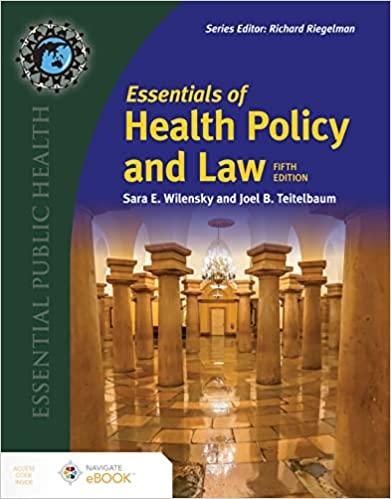CBO estimates that premium subsidies and CSRs will cost the federal government ($851) billion from 2018 to
Question:
CBO estimates that premium subsidies and CSRs will cost the federal government \($851\) billion from 2018 to 2027 (CBO, 2017c).
Is this a good use of resources? Are these subsidies well designed? Are they sufficient to make health insurance affordable? Do they cover people with incomes that are too high?
Should they cover more people?
ARPA was passed on March 11, 2021, almost 11 years after Obama signed the ACA into law. The Democrats used the reconciliation process to pass the almost \($2\) trillion COVID-19 relief bill. ARPA included a variety of provisions, such as stimulus payments to individuals, unemployment benefit extension, small business aid, and vaccine and testing funding. Related to the ACA, ARPA expanded the premium tax credit rules to include more individuals and provide higher payments. These provisions are temporary, only covering FY 2021 and 2022. The next Congress will determine whether the provisions are extended or whether the original ACA rules will return. Specifically, ARPA changes the premium tax credits by doing the following:
• Extended eligibility beyond 400% FPL. Individuals will receive financial assistance if they would otherwise spend more than 8.5% of their family income on individual market premiums. This provision is expected to reach 3.6 million uninsured individuals.
• Increase the premium tax credit for individuals between 100% and 400% FPL. For example, individuals earning 100%–125% FPL must contribute 2%–4% of their income under the ACA. Under ARPA, they can enroll in a \($0\) premium plan. This provision is expected to provide savings for 9 million current enrollees as well as additional new enrollees.
• The premium expansion is estimated to cost \($34.2\) billion over 10 years.
Step by Step Answer:

Essentials Of Health Policy And Law
ISBN: 9781284247459
5th Edition
Authors: Sara E. Wilensky, Joel B. Teitelbaum





